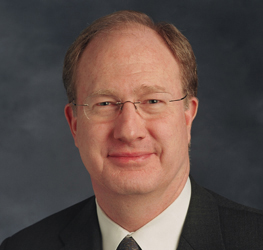Christopher N. Knight, a retired partner with Foley & Lardner LLP, was a member of the Finance & Financial Institutions Practice, with concentrations in public finance and other forms of structured finance. He was formerly the chair of the firm’s Public Finance Practice and the managing partner of the firm’s Chicago office.
Christopher’s experience includes serving as bond or underwriter’s counsel for approximately 650 public finance transactions nationwide, including general obligation, tax increment, special service area and school district financings, and financings related to airports, single and multifamily housing, sports facilities, pollution control, solid waste disposal, health care, education, industrial development, student loans, and public utilities. He has also represented banks as the provider of credit enhancement and loan facilities for approximately 350 public finance and other forms of structured financings, as well as trustees, investors, and other participants in the restructuring of defaulted municipal debt.
His community activities include the Chicagoland Chamber of Commerce, the Chicago Humanities Festival, the Lyric Opera of Chicago, the Writers’ Theatre and the National Council for the American Theatre. He is a fellow of the American Bar Foundation and a member of The Economic Club of Chicago.
Christopher is a law graduate of Duke University, where he was an editor of the Duke Law Journal, and received his undergraduate degree from Yale University. He is admitted to the bar in Wisconsin, North Carolina, Minnesota, Illinois, and New York and is admitted to practice before the U.S. Courts of Appeal for the Fourth, Seventh, and Eighth Circuits, and the U.S. Supreme Court.
Christopher has been Peer Review Rated as AV® Preeminent™, the highest performance rating in Martindale-Hubbell’s peer review rating system and was selected for inclusion in the 2005-2013 Illinois Super Lawyers® lists. He was also recognized for his work in public finance law in Best Lawyers in America® (2013).*
*The Illinois Supreme Court does not recognize certifications of specialties in the practice of law and no award or recognition is a requirement to practice law in Illinois.
